Cannabis in Colorado: Laws, Legalization and Regulation
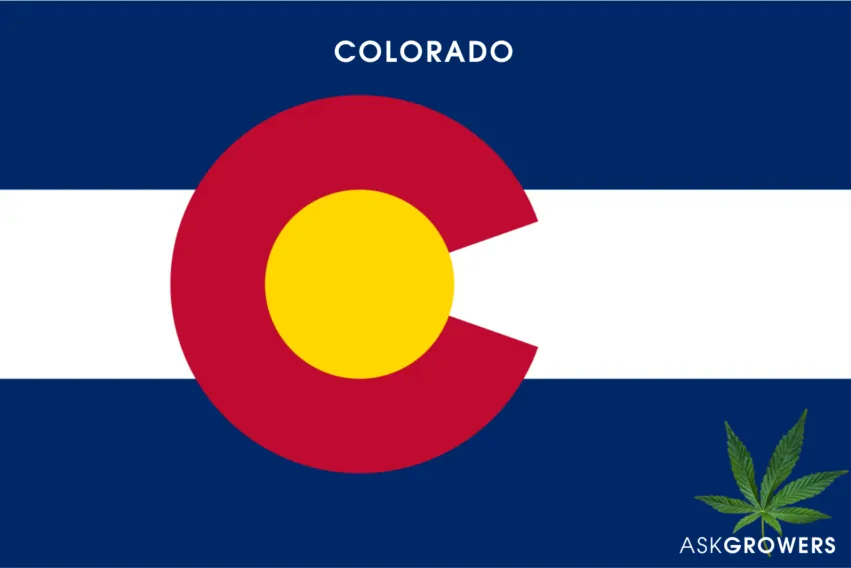
After marijuana legalization in Colorado, it can be complicated for tourists visiting the state to abide by all the rules and weed laws. This guide spotlights the main regulations that individuals have to observe to get 100% legal cannabis experience. Read this helpful post with practical advice if you don’t want to get a ticket for possessing or consuming green in the wrong place.
Is weed legal in Colorado?
Regarding its attitude towards marijuana, Colorado remains one of the most liberal states in the United States. It approved the use of medical cannabis in 2000 and legalized weed for recreational consumption in 2012. Along with Washington, Colorado was the first state in the nation that allowed the sale, use, and cultivation of cannabis for recreational purposes. In 2014, the commercial sale of pot started across the state providing the product to citizens of 21 years and older. It has become an important date for Colorado because this policy has led to hash tourism and brought the state significant profits. Now, delivery services and retail locations offer a vast array of hemp-infused products for Colorado marijuana enthusiasts: flowers, edibles, topicals, concentrates, oils, cannabis seeds, and multiple innovative goods. The citizens with medical needs who are registered with the state can possess up to 2 oz. (57 grams) of hemp. For recreational use, legal aged adults are allowed to possess 1 ounce of weed or 8 grams of concentrates. Out-of-state visitors are also permitted to have this amount of marijuana. They can legally have 1 oz. of Colorado weed while traveling within the state and give away as a gift to other citizens of 21 and older. The possession of hemp paraphernalia is prohibited and punishable by a fine of $100.
Buying Marijuana in Colorado?
About 175 out of 272 municipalities in Colorado allowed the sale of recreational hemp after it had become legal. Use cannabis shops menu to find the nearest licensed retailer because not all dispensaries offer recreational marijuana for sale. With the first Proposition passed in the state, individuals were limited to buying only 7 grams of weed a day in retail stores. In 2016, the law was changed, and now it allows adults of 21 to purchase 1 oz./28 grams of flowers per day. Concentrates and edibles are determined as non-equivalent products with a different THC level and treated differently when you make a purchase. According to new standards, 28 g of flowers = 8 g of concentrates = 800 mg of edibles. These equivalency guidelines have become a grey area because buying a combination of weed products (like concentrates plus flowers), it is not easy to stay within legal limits. Colorado residents of 18-21 years old can buy weed for medical treatment with a valid doctor’s recommendation and an ID. Their purchase limit is 2 oz. As a rule, retail stores and dispensaries operate from 8 a.m. to 10/12 p.m., but each city can dictate its own rules within the assigned time frame, and the closing time can vary. The state doesn’t support reciprocity. In connection therewith, Colorado non-residents with an approved medical consent cannot buy weed from medical marijuana (MMJ) dispensaries and have to purchase it in stores as recreational customers.
Read Also: How To Buy Recreational Marijuana
Medical and recreational cannabis delivery services are allowed across the state, but cities have the right to permit or reject this decision. Most cities haven’t declared their position yet.
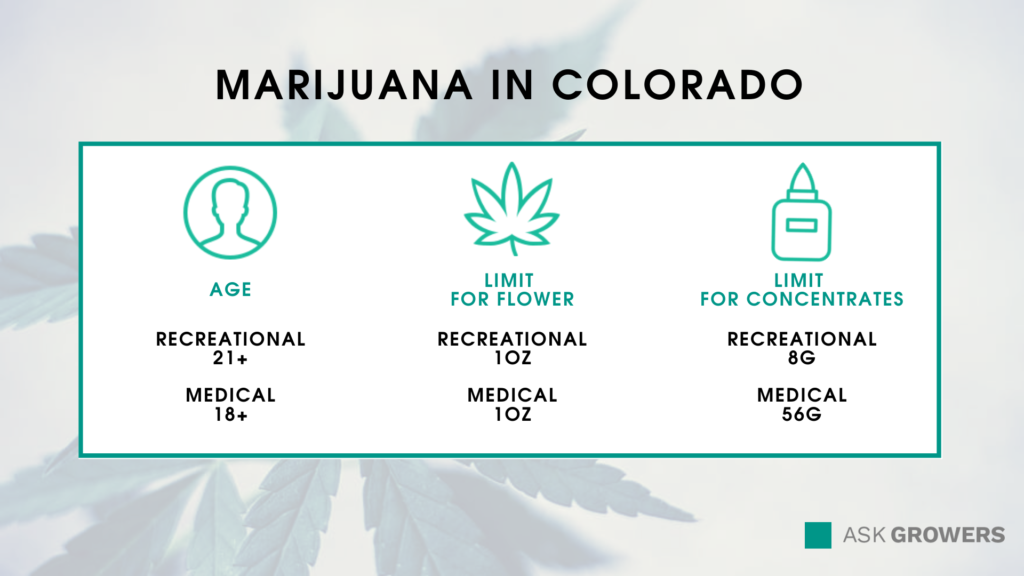
Cannabis consumption in Colorado
It is legal to buy and possess marijuana in Colorado, and this attracts a lot of tourists who are coming here to try the product. However, it is illegal to consume marijuana anywhere. To remain safe in the state, use the designated areas to consume weed.
You can smoke in:
- your private house (or as agreed in your lease with a property owner);
- your backyard out of the public view;
- icensed cannabis consumption facilities;
- otels that have declared as “smoker-friendly.”
- he age to smoke weed is 21 and older.
Consumption of your own weed is not allowed:
- on federal lands and federal properties (national forests/parks and courthouses) with a fine of $1,000 and a year of jail time on the first offense recording;
- any public place (ski resorts, school campus, transport, restaurants, sidewalks), on public venues (concerts);
- in a car;
- at local parks, amusement parks;
on any premises where tobacco use is prohibited. A new bill passed in May 2019 allowed subsidiary businesses to apply for on-site cannabis consumption. The application process is difficult and long, but some firms that happened to succeed created special tasting rooms, private clubs, and bring-your-own-weed lounges to consume it. These marijuana-based hospitality establishments start opening their doors in Colorado. Some companies can test their employees for cannabis and make employment choices based on the results of the drug test. Check the workplace policy before applying for a job. If individuals under 21 are caught while consuming or possessing pot, they will not face a criminal citation but a civil penalty. Schools may have other disciplinary policies for students who are caught on school property. Some legal penalties may include fines or prison sentences.
Taxes on Marijuana in Colorado
With a Colorado medical marijuana card, you can save good money on cannabis purchases because when buying weed for medical use, you are not imposed to pay a retail sales tax (10%), a state retail excise tax (15%), and a local city marijuana tax. As a result, the final retail purchase price for recreational weed is quite hefty. Consumers should pay both retail sales weed taxes. A good point is that this cannabis is exempt from the 2.9% standard state sales tax. On the contrary, medicinal marijuana is only subject to the 2.9% state sales tax.
Colorado Medical Marijuana Card
In fact, to buy marijuana in stores, you don’t need to be registered in the MMJ program. However, qualified patients can enjoy reduced prices on cannabis products offered in dispensaries and avoid payments for weed taxation. The fee to renew your card yearly will surely pay for itself. In addition, medical patients can get legal access to higher amounts of cannabis (more than 2 oz.), if they have a recommendation from a physician. Colorado doesn’t honor medical cards issued out of state, and non-residents cannot use them making a purchase in a local dispensary.
Read Also: Is CBD Flower Legal in All States?
How to Get a Medical Marijuana Card in Colorado
The state-authorized ID cards are issued to qualified patients and their caregivers. Minors should make an application with a parent (or legal guardian). Here are some facts according to Colorado MMJ statistics:
- The participants’ average age in the program is 42,5 years old;65% of patients are male, 35% are female;
- A third of patients (32%) have designated a caregiver.
- The process of getting a medical card in Colorado is described below in detail.
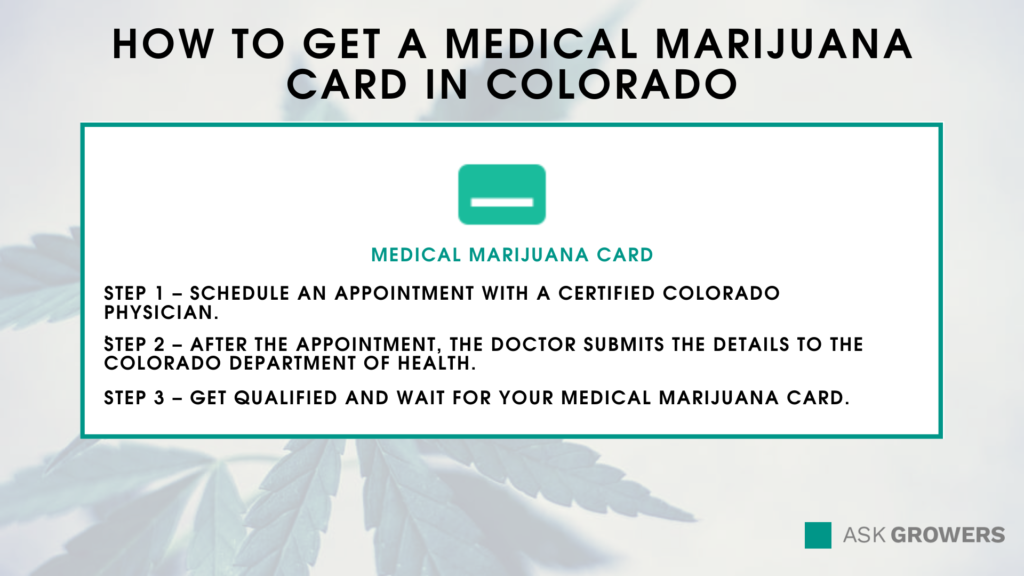
Diseases
Patients with the following recognized conditions and diseases can apply for an MMJ card:
- cancer;
- wasting syndrome (cachexia);
- chronic/severe pain;
- epilepsy/seizure disorders;
- glaucoma;
- autism spectrum disorders;
- HIV/AIDS;
- nausea;
- chronic nervous system disorders;
- multiple sclerosis;
- PTSD (post-traumatic stress disorder);
- opiate replacement.
There can be other medical conditions/debilitating diseases not listed here but approved by the Colorado Board of Health. The specified doctors can recommend medical cannabis if, in their professional opinion, it can alleviate the disease and bring actual health benefits. Patients are required to update a physician certificate every year.
Patient qualifications
To be qualified for an MMJ card, an individual should:
- be a resident of Colorado;
- have a valid social security number;
- receive treatment for a certain medical condition;
- obtain a recommendation from a licensed physician.
Check below a step-by-step registry process.
Patient registry process
The application process for an MMJ card includes several steps. The registration can be performed online, sent by mail, or made in person. Firstly, create an online registry account on the governmental website and fill in an application form. Submit your valid driver’s license (or other photo ID) to establish residency and a certificate from the doctor. Indicate your caregiver and submit his/her registration ID. Also, the $25 fee is required. Parents of minors (patients under 18) should submit a Parental Consent Form.
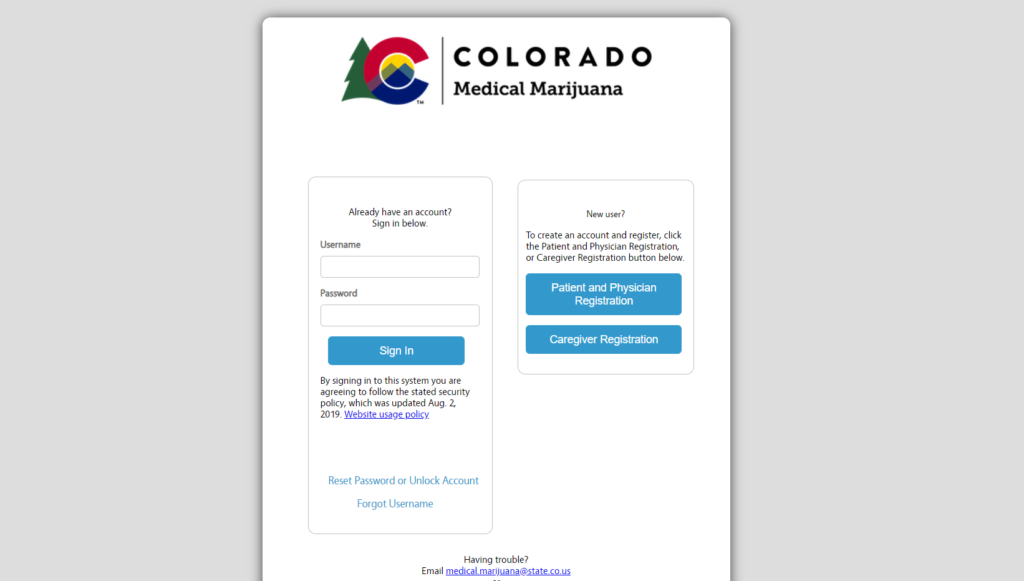
Caregiver qualifications
To become a caregiver, you should be 18 years old and get registered with the state MMJ card program. You should also be a permanent Colorado resident. Along with patients, caregivers should go through this application procedure every year. They can choose one or more from 4 designations if they:
- will transport weed for patients;
- want to cultivate cannabis on behalf of patients;
- are advising caregivers on proper cannabis use;
- are parents of a patient younger than 18.
The registration process is required for the first 2 activities (transportation and cultivation). Caregivers are limited to have 5 patients and can grow up to 36 hemp plants.
Transporting Marijuana in Colorado
Adults of 21 and older can drive with 1 oz. of pot products, which should be kept in a sealed box. An open container with weed should be stored in the trunk of the motorized vehicle. In cars that have no trunk, cannabis can be transported behind the last seat. Don’t leave Colorado with weed and throw out hemp leftovers in advance or return it to a dispensary for disposal. Smoking weed inside the car is not allowed for drivers and other passengers. Operating a car under the influence of marijuana is a crime and punishable with a charge. Even MMJ cardholders can be arrested if any THC traces have been detected in their blood (9 nanograms of THC per 1 ml of blood). You should abstain from driving after the use of cannabis products.
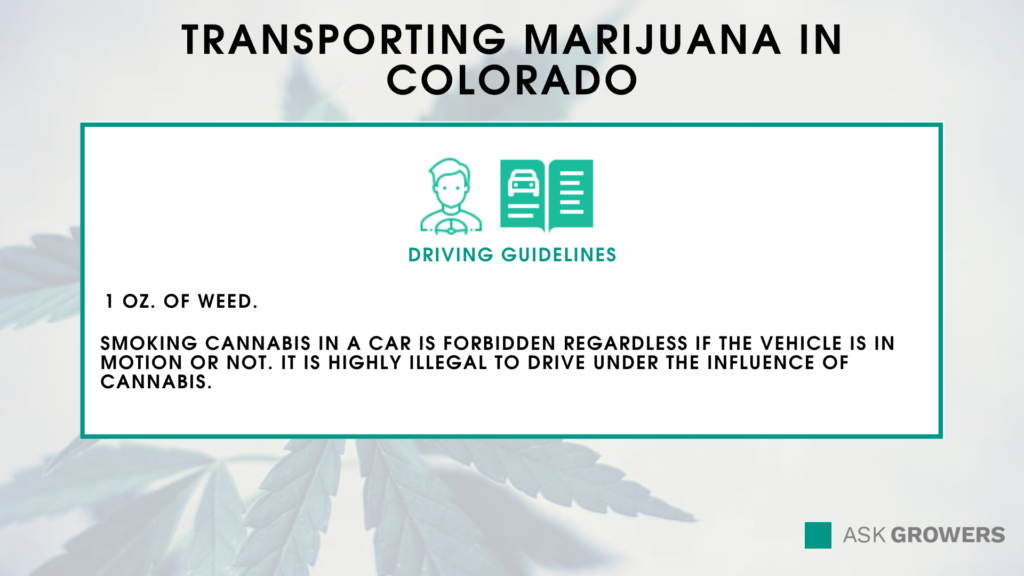
Read Also: Can You Transport Marijuana Across States?
Exporting Marijuana
The cannabis industry has significantly grown since its legalization and thanks to recreational laws. So, it may sound tempting for you to bring home some green from Colorado. The piece of advice is you should better not. You can carry and possess weed within the state. To avoid problems and prosecutions, you cannot travel out of Colorado with cannabis. The law enforcement agency can also perform searches of vehicles. Colorado neighboring states are not happy with its liberal marijuana laws, and police officers on the other side of the state boundary are inspecting the passengers with an intention to seize cannabis. Bringing weed to the airport is prohibited.
Growing Marijuana
Colorado citizens of 21 and older can legally grow weed at home abiding by some growing laws. The cultivation plant limit is 6 mature plants with only 3 of them flowering. However, each household can cultivate a maximum of 12 plants. This means if there are 3 grown-ups in the house, they can grow not more than 12 plants. The cultivation process should be carried out in a locked space. MMJ patients can grow 6 plants (with 3 mature) or even more if it is recommended by a qualified physician. The state has legalized the cultivation of cannabis by farmers who got licenses from the Colorado Department of Agriculture.
Licensing for growers, manufacturers, processors, retailers, etc.
To grow marijuana in Colorado, you need to get a license. There are numerous types of licenses depending on what kind of business you are going to operate. You should apply for and receive approval from the local authority if you are planning to work within its jurisdiction. According to the statute, there are certain requirements and regulations that apply to everyone who wants to work in the cannabis industry:
- be a Colorado resident;
- be 21 years or older;
- have no Controlled Substance felony convictions;
- pass criminal background checks.
Applicants can engage only in the type of activity they have been licensed for.
Read More About Marijuana Laws In The Following States: Michigan, Illinois, Vermont, South Dakota, Alaska, Maine, Montana, New Jersey, Washington, Massachusetts, Maryland
Sources
-
Wikipedia, (2023) Cannabis in Colorado. Available at: https://en.wikipedia.org/wiki/Cannabis_in_Colorado
-
NORML, (2023) Colorado Laws and Penalties. Available at: https://norml.org/laws/colorado-penalties/
-
Colorado.com, (2022) How to Dispose of Cannabis on Your Way Out of Colorado. Available at: https://www.colorado.com/articles/how-dispose-cannabis-your-way-out-colorado
-
Andrew AM; Richard DZ; Kennon JH, (2015) The Implications of Marijuana Legalization in Colorado. U.S. National Library of Medicine. Available at: https://www.ncbi.nlm.nih.gov/pmc/articles/PMC4404298/
-
CBS News, (2019) 2 New Marijuana Laws Go Into Effect In Colorado In 2020. Available at: https://denver.cbslocal.com/2019/12/31/new-marijuana-laws-colorado-2020/
-
Bishop-Henchman J; Scarboro M, (2016) Marijuana Taxes: Lessons from Colorado and Washington. Tax Foundation. Available at: https://taxfoundation.org/marijuana-taxes-lessons-colorado-washington/

 Guides
Guides

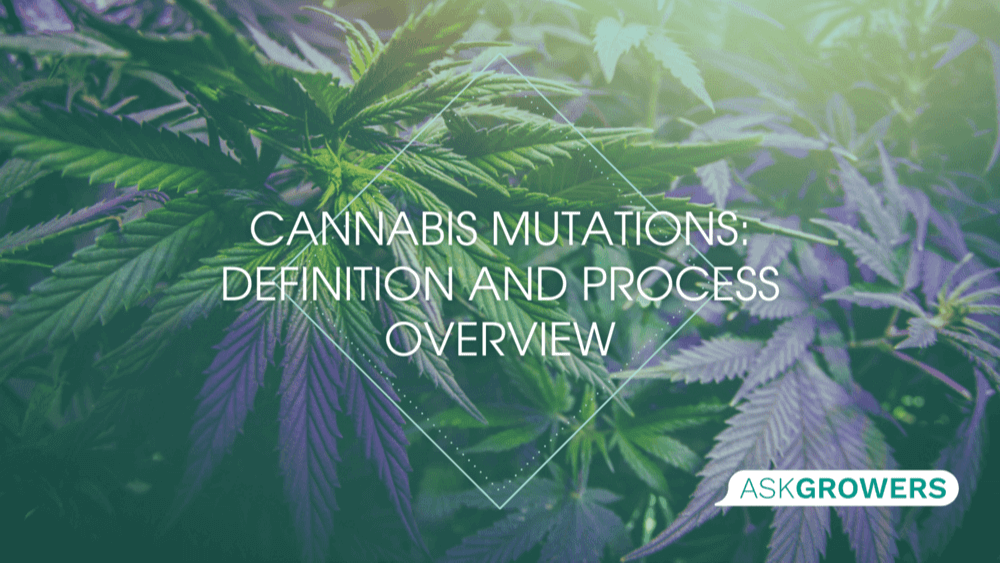
.png)
.png)
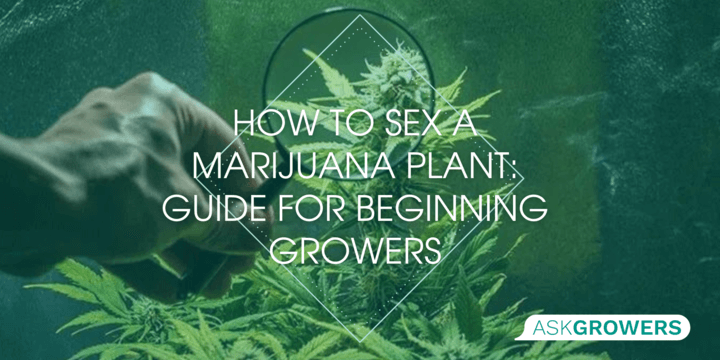
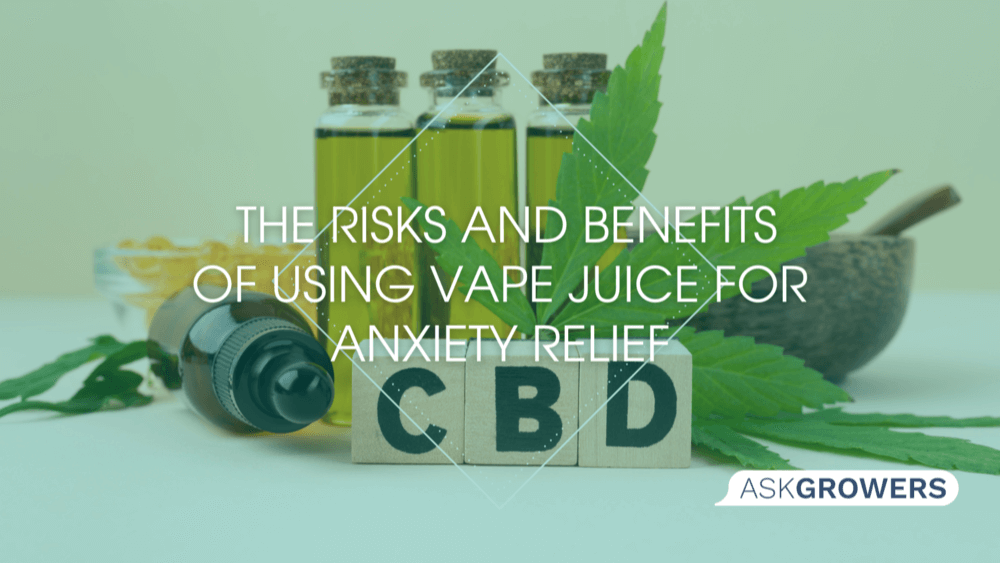
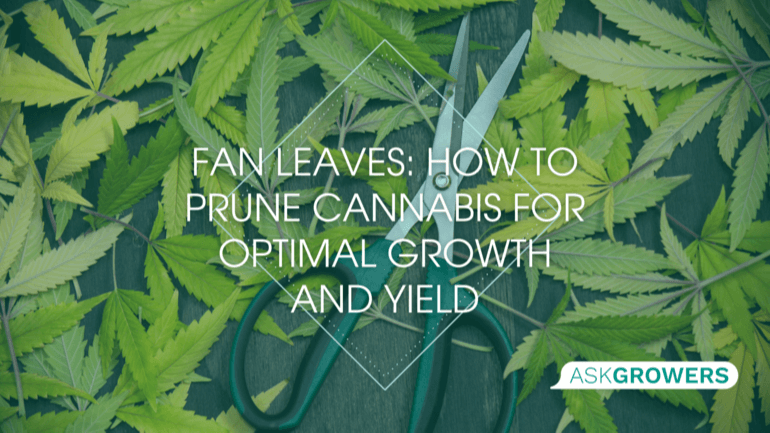
 (1).png)

.jpg)
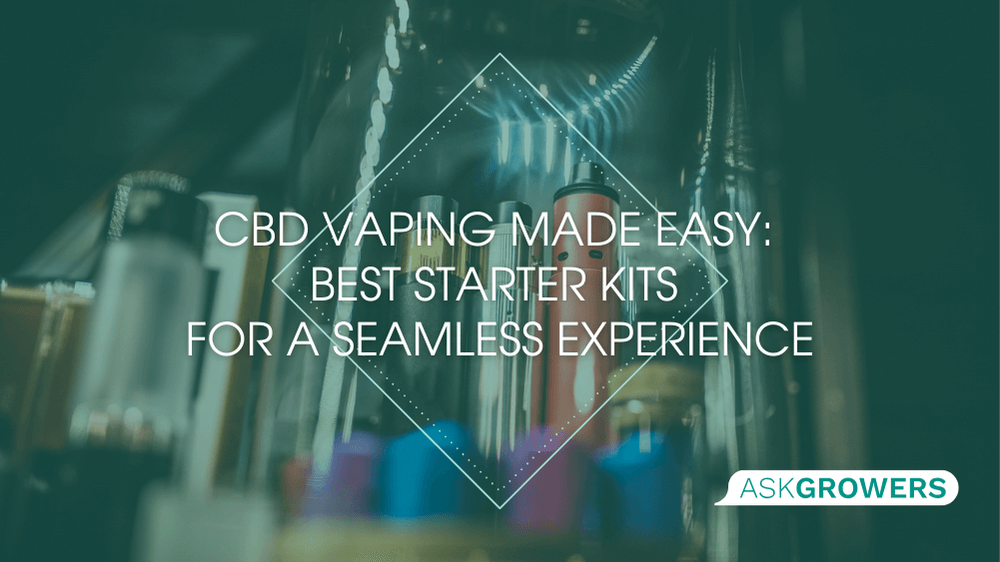
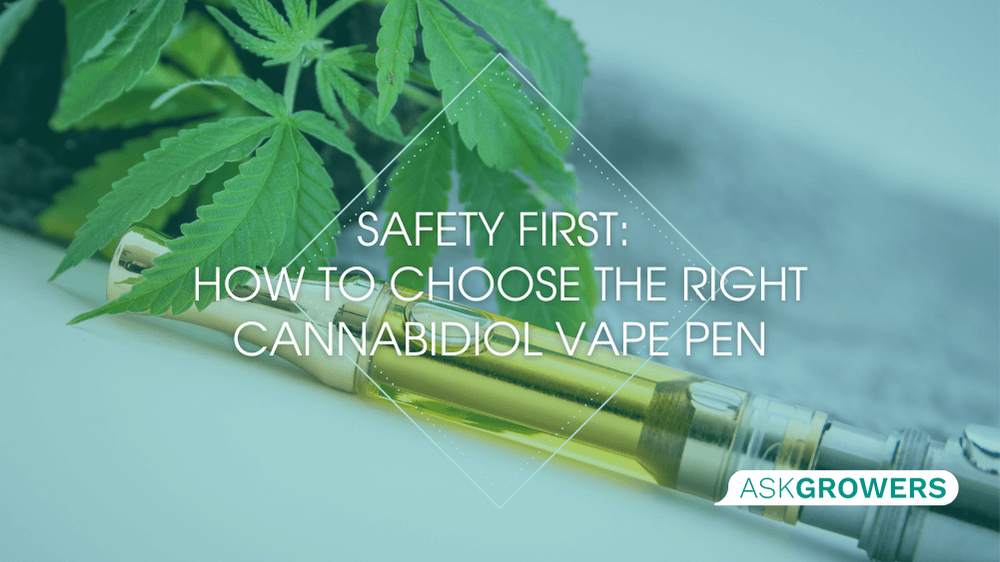
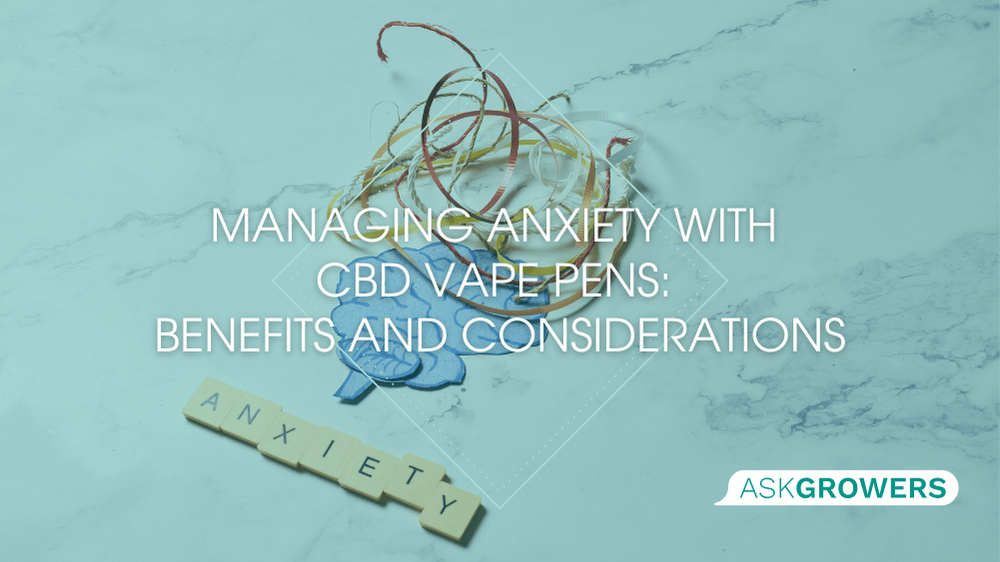
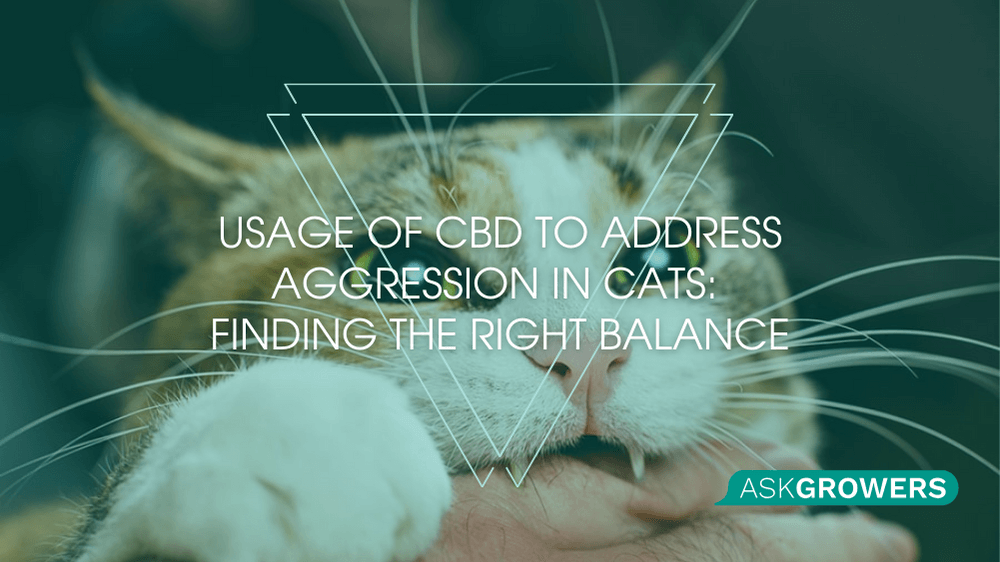
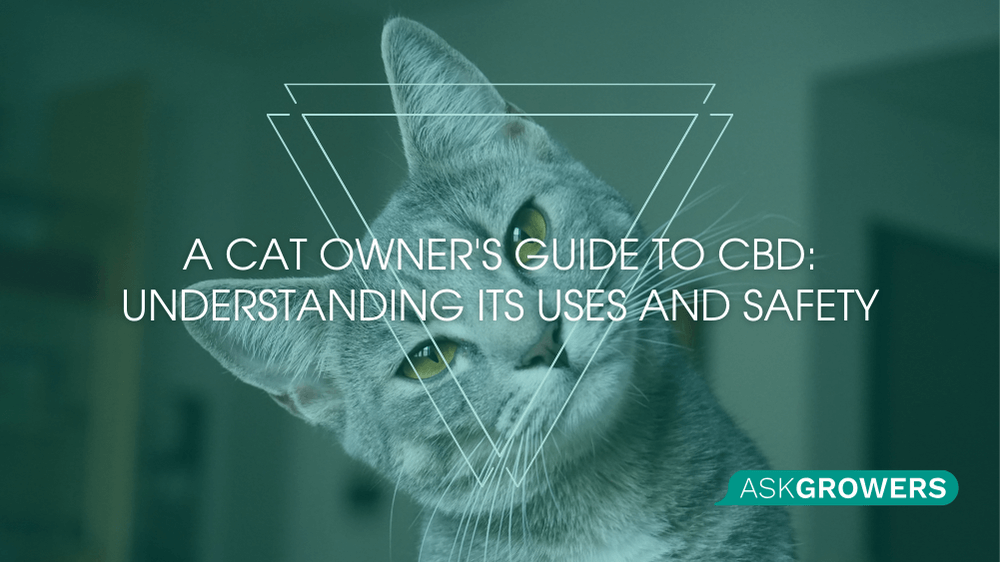
Be the first and share your opinion
Write a Review